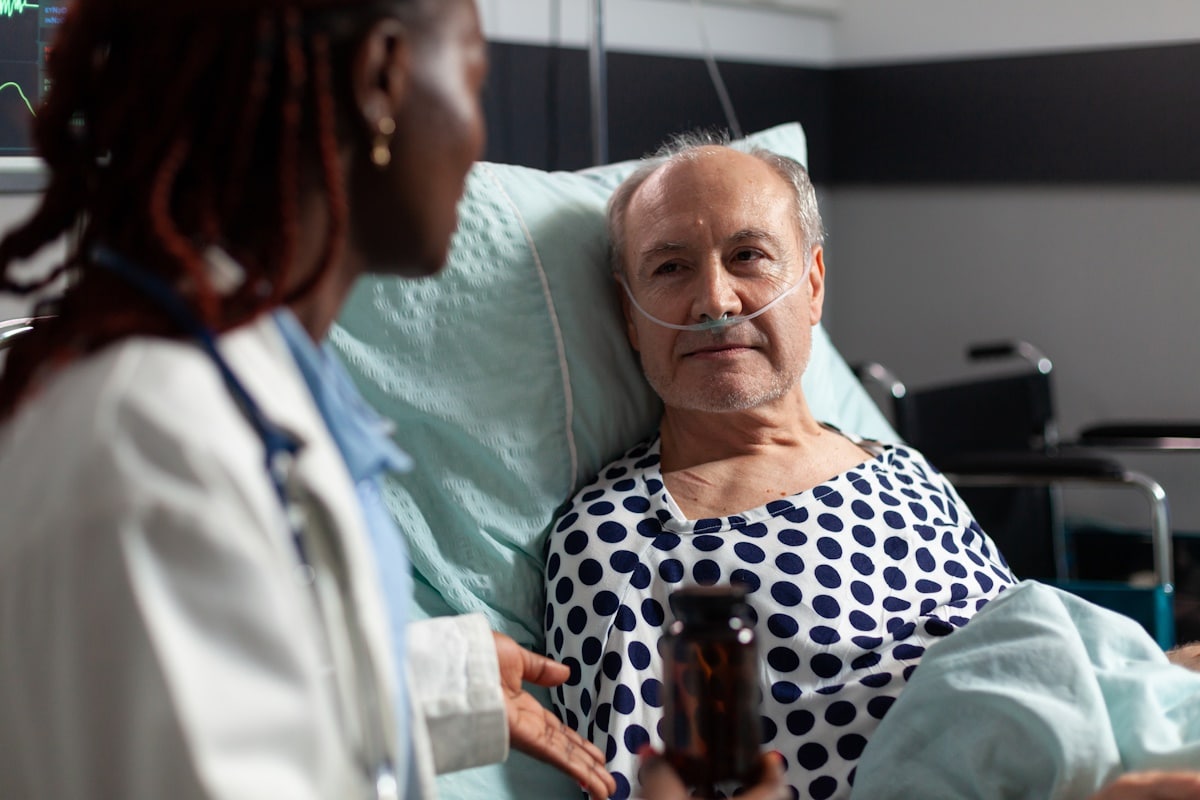When someone undergoes elective surgery, they usually don’t want to think about the possibility of having a complication after the procedure. However, complications can and do occur during surgical procedures, even in the case of prostate gland removal for men with cancer. Men need to be aware of this possibility and ask their surgeon about any concerns they may have.
In December of last year, US Defense Secretary Lloyd Austin had surgery to remove his prostate gland due to complications following cancer treatment. The specifics of his procedure have not been disclosed, but the Pentagon has revealed that Austin underwent a minimally invasive surgical technique called a prostatectomy. This type of procedure uses robotic instruments that are passed through small incisions in the abdomen, commonly known as “keyhole” incisions.
Approximately one week after his surgery, Austin experienced severe pain in his abdomen, hip, and leg. As a result, he was admitted to Walter Reed Hospital’s intensive care unit on January 2. A medical examination revealed that he had a urinary tract infection and fluid buildup in his abdomen, which was affecting his bowel function. After receiving successful treatment, Austin was readmitted to the ICU on February 11 for an “emergent bladder issue.” He returned to work two days after undergoing a non-surgical procedure under general anesthesia. Austin received an excellent cancer prognosis.
Understanding Urinary Tract Infections (UTIs) Post-Prostatectomy
While minimally invasive prostatectomy is generally well-tolerated, studies indicate that only 2.1% of patients develop urinary tract infections post-surgery. UTIs may occur due to bacterial entry into the urinary system via a catheter, a necessary component of the prostatectomy procedure. Antibiotics are administered during and after surgery to minimize infection risks, and the catheter is typically removed one to two weeks post-operation.
Management of Urinary Infectious Complications
In the event of urinary infectious complications, patients will be admitted to the hospital and broad-spectrum antibiotics will be used to treat the infection. Urine culture tests are conducted to identify the specific bacterial species causing the infection, allowing tailored antibiotic therapy. Treatment duration typically spans 10 to 14 days to ensure effective resolution.
Understanding Gastrointestinal Complications
Although gastrointestinal complications post-prostatectomy are rare, affecting fewer than 2% of patients, various issues may arise. These include ileus, where the small intestine temporarily ceases peristalsis, often resolving with dietary adjustments and, if necessary, fluid removal via a nasogastric tube. Small bowel obstructions may occur, necessitating similar management strategies. Scar tissue-related obstructions may require additional surgical intervention.
Understanding Fluid Accumulation in the Pelvis
After pelvic lymph node removal during surgery, lymph fluid may accumulate, forming a lymphocele. While most lymphoceles are asymptomatic, infection is a potential complication, managed with antibiotics and, in severe cases, drainage via a percutaneous catheter. Advances in surgical techniques aim to minimize lymphocele occurrence.
Individual Risk Factors and Considerations
Certain factors, such as diabetes and autoimmune diseases, may increase a man’s risk for surgical complications, particularly infections and impaired wound healing. In such cases, alternative treatments like radiation therapy may be considered to mitigate these risks.
Parting Thoughts
Discussing potential surgical risks with your healthcare provider to make informed decisions is crucial. While prostatectomy, especially minimally invasive approaches, boasts a favorable risk profile, understanding potential complications is essential. Fortunately, severe complications necessitating hospital readmission are rare, and most patients experience successful outcomes
By incorporating these revisions, the article clarifies the complications associated with prostate cancer surgery and emphasizes the importance of informed decision-making and comprehensive patient care.
Dr. David Samadi is the Director of Men’s Health and Urologic Oncology at St. Francis Hospital in Long Island. He’s a renowned and highly successful board certified Urologic Oncologist Expert and Robotic Surgeon in New York City, regarded as one of the leading prostate surgeons in the U.S., with a vast expertise in prostate cancer treatment and Robotic-Assisted Laparoscopic Prostatectomy. Dr. Samadi is a medical contributor to NewsMax TV and is also the author of The Ultimate MANual, Dr. Samadi’s Guide to Men’s Health and Wellness, available online both on Amazon and Barnes & Noble. Visit Dr. Samadi’s websites at robotic oncolo gy and prostate cancer 911.


